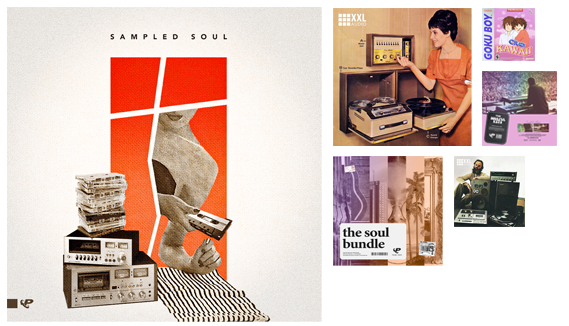If you're here...there's a good chance you have some interest in samples and sampling!? It's everywhere and you'd be hard-pressed to find a song that doesn't sample at least something, no matter how little! get to know the ins and outs of how sampling has developed over the years!
The music industry loves sampling and a new joint study by Bose and Currys has gone in-depth to highlight some of the most groundbreaking and popular music samples of all time. If you take a listen through the charts you’ll find that music sampling is as popular as ever, and the list of 2019 Grammy nominees have sampled tracks a total of 853 times in their own releases.
If you’ve ever listened to a new song and thought, ‘this sounds familiar’, it’s likely that the song you’re listening to features a sample. This could be a sound, a hook, a vocal line or even an entire melody taken from one song and used to inspire and create something new.
When Did Music Sampling Start?
Sampling is a hugely popular, but by no means new, technique in the music production industry. A recent study found that whilst the practice of sampling really took off in the 1980s, it had been around for many years prior.
The technique can be traced back to as early as the 1900s, with Musique Concrète becoming popular in the 1940s. Using ‘real-life’ sounds integrated into a track, Musique Concrète isn’t sampling as we know it today, but it was the origin of the technique. The 1970s saw the largest number of songs being sampled, however, 1973 was the year from which most tracks were sampled, with more than 12,000 snippets taken and used by later artists.
Fast-forward to the present day and sampling continues to evolve and increase in popularity, almost becoming part-and-parcel of music production.
What Are The Most Popular Music Samples?
Although reggae was the first genre to use widespread sampling in the 1970s, the hip hop, rap and R&B genres account for 64% of all sampling across the music industry. Music producers also love the sounds of soul, funk and disco with a staggering 91,200 songs from these genres being sampled over the years.
It’s the Godfather of Soul himself who takes the crown for Most Sampled Artists, with his back catalogue being sampled over 7,000 times in tracks from the likes of Jay-Z, Justin Timberlake, Public Enemy and Wu-Tang Clan

What Are The Laws of Sampling Music?
Sampling is entirely legal in the music industry, as long as permission is obtained from the original artist. However, music sampling has been the subject of many legal disputes, landing artists in hot water over their use of samples.
One of the most famous recent cases was a dispute over Robin Thicke’s 2013 hit, “Blurred Lines”. In April 2014, it came under scrutiny when the family of late soul singer Marvin Gaye filed a lawsuit which alleged that the track infringed Gaye’s 1977 song ‘Got to Give It Up’. Producer and track co-writer Pharrell Williams was also named in the lawsuit.
The verdict came in March 2015 when they were charged with unlawfully copying Marvin Gaye’s 1977 hit. They were ordered one of the largest payouts in music copyright history; $5.3 million and 50% of the song’s future royalties were awarded to the Gaye family.
Prime Loops helps you avoid any potential legal issues by delivering 100% Royalty Free sounds, this means you’re free to create, release and perform any music using our
samples and loops files without the fear of landing yourself in hot water.
Want to Learn More About the History of Sampling?
Find plenty more insights into music sampling through the decades and across genres with this
interactive tool developed by Currys in collaboration with Bose.
The Music Samples Through Time initiative explores the ever-popular technique of music sampling in detail.
Use their tool to find out how many songs have used sampling and how many songs have been sampled throughout the years.

